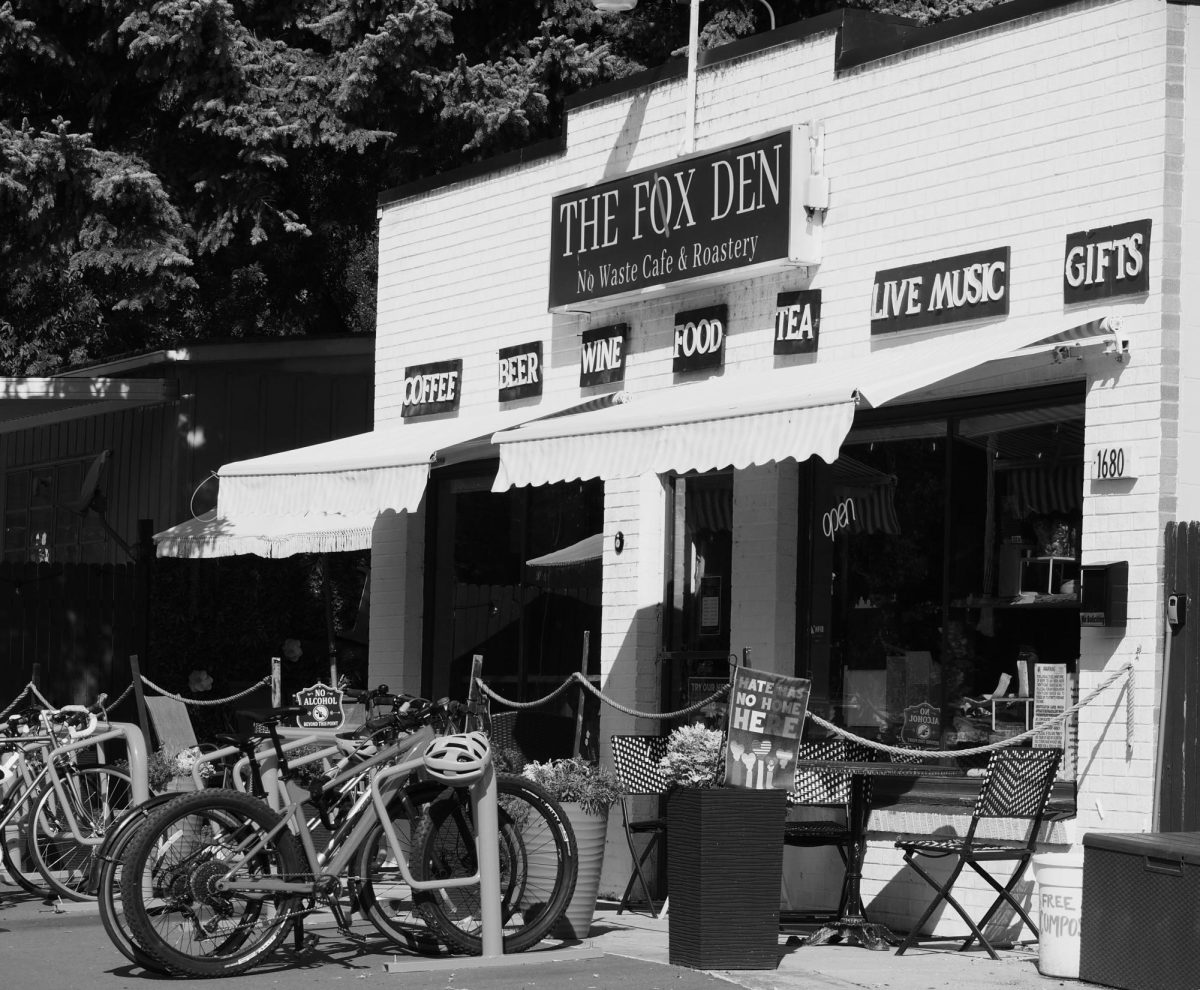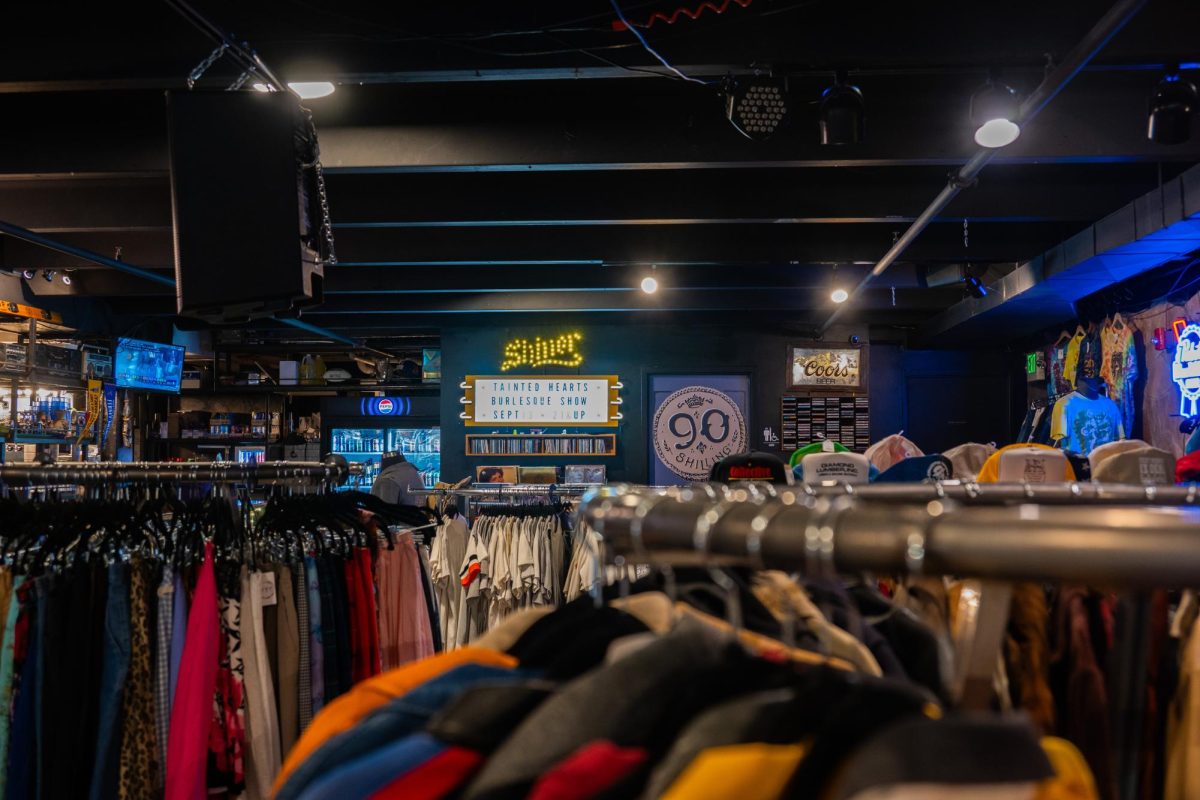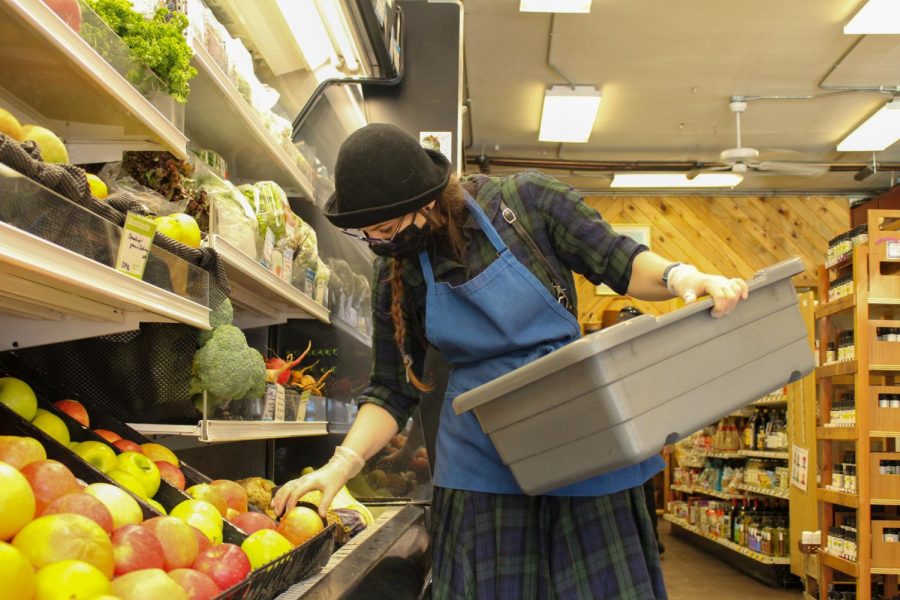Ad
Opinion: Food Sustainability-Fort Collins’ Way to Approaching a Complex Situation
Mountain Avenue Market employee Jecca Swanson restocks the produce section Feb 6. “One of the amazing things about co-ops is actually the way they’re structured, so it’s run by the community basically if you’re a member here you can vote on the board and the board members run the store, so it’s people here in the community making the decisions. (Anna Tomka | College Avenue Magazine)
March 2, 2022
In the United States more than $160 billion is wasted on food each year, according to The New York Times. This contributes to 3.3 billion tons of carbon waste. That is more than enough money to buy a private island or an entire sports team. Within that umbrella, dairy accounts for the largest portion of food waste according to the United States Department of Agriculture. That waste is roughly $91 billion for just one year.
Within Fort Collins, the community has fostered mindful practices towards creating a more eco-friendly atmosphere. Places like the Mountain Avenue Market and FoCo Cafe have built their businesses upon providing local foods and packaging them sustainably, both of which fuel healthier eating habits while treating the environment with care.
When sustainability isn’t taken care of, its effects trickle down and impact countless things, such as water supplies and greenhouse gas emissions. Various organizations such as the FAO’s Climate Smart Agriculture Association have worked on creating efficient agricultural sustainability, reductions in greenhouse gas emissions and greater adaptations to climate change. They’ve partnered with the Paris Climate Agreement to offer solutions for combating the global food and climate crises.
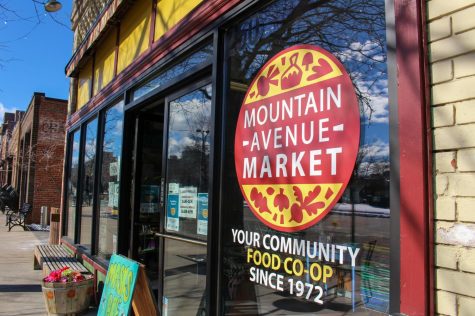
“Where the model really shines is through our bulk department,” Dana Guber, manager at the Mountain Avenue Market, says. “Shopping bulk allows you to shop completely zero-waste while getting much cheaper prices on higher-quality foods.”
Along with shopping in bulk, local farms and nonprofit food rescues such as Vindeket Foods allow Fort Collins to have access to healthier eating options. They provide a bridge between the affordability and accessibility gap according to Michelle Klamm, chef at the FoCo Cafe.
“We also partner with Nosh Noco to assist in delivering meals for easier access, and offer take away ordering for those who would prefer to enjoy lunch on their own time, in their own space,” Klamm says.
Although many resources provide local foods, it’s not always easily attainable. Two things contribute to this: access and affordability. Transportation, the lack of nutritional education, and an under-valued market for people who want to shop locally are all contributors, according to Klamm.
Another factor that contributes to the difficulty of sourcing local foods is U.S. capitalism. The system supplies an abundance of cheap food, but cheap does not mean quality. Food is an instrument for profit in capitalism, making it a tool for consequences to occur when it comes to sustainable eating. Seventy-five percent of the world’s biodiversity has already been destroyed by industrial agriculture according to Eartha, an online magazine dedicated to publishing stories about sustainability, the environment, and development.
“Capitalism is designed to support corporations, exploit people and the environment and consolidate wealth,” Guber says. “Living in this system makes it intentionally difficult for people to eat and source local foods.”
Even though sustainable eating is difficult to implement, it is possible, especially for college students. Important skills like learning how to have a healthy diet to properly nourish your body can be useful.
Rachel Barckholtz, a third-year CSU student studying health and exercise science has learned all about nutrition and the ways that sustainable eating can be implemented into college students’ lives.
According to Barckholtz, there are many resources and ways that college students can incorporate healthier foods into their diet. Some of these ways include:
- Utilizing resources like Rams Against Hunger, a service that provides support to students experiencing food insecurity or who don’t have the option to buy healthy foods.
- Keep in mind that healthy eating is all about moderation. You don’t have to completely restrict yourself from sweets or salty foods, so know that finding a balance will help you in the overall process.
- Plan and set a budget. You can make the switch to buying healthier foods if you take the time to figure out what can be achieved.
- Have someone keep you accountable. Whether it’s a roommate, family member or friend, having a person keep you on track towards making healthy eating choices will make it all that much easier.
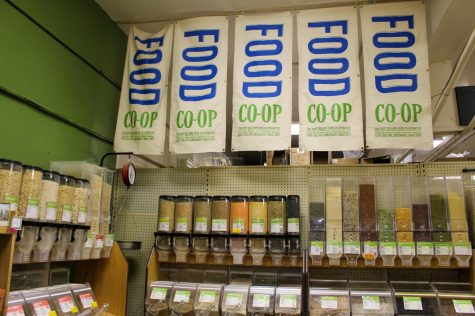
“We are in a global food crisis in which we will out-populate our food resources,” Barckholtz says. “Sustainable eating is also a way for students to be more conscious of their diet patterns and help them make healthier food choices. In addition, sustainable eating helps students be aware of where their food is coming from and how it is being delivered to them!”
Nutrition and food sustainability go hand in hand with one another. People can live better lives by implementing healthier eating choices, and the environment can grow to be a stronger place that flourishes and supports everyone.






